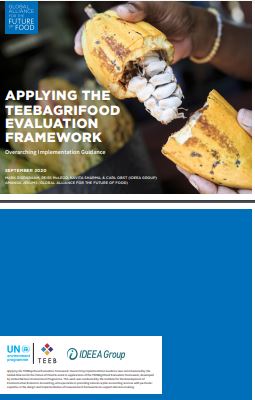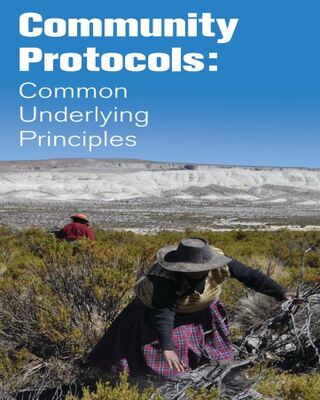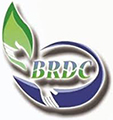Guidelines
Guidelines for Processing of Patent Applications Relating to Traditional Knowledge and Biological Material
2012
Publisher/Organisation: Office of the Controller General of Patents, Degins & Trademarks
India has played a pivotal role in the decade old efforts of developing countries on the global platform for bringing the protection of traditional knowledge at the centre stage of the International Intellectual Property System. These efforts have resulted inter alia in setting up of an Inter-Governmental Committee (IGC) on Intellectual Property, Traditional Knowledge, Genetic Resources and Folklore by WIPO and the Doha Ministerial Declaration of the year 2001 wherein it was decided to establish a relationship between the TRIPS Agreement and the UN Convention on Biological Diversity (CBD) on the issue of Access to Genetic Resources and the fair and equitable sharing of the benefits arising from their utilization. F
Mainstreaming Gender into ABS Value Chains: Gender Toolkit
2019
Publisher/Organisation: United Nations Development Programme
The UNDP-GEF Global Access and Benefit Sharing (ABS) Project´s gender toolkit helps ABS professionals in the design of gender-responsive interventions to accelerate gender equality and women's empowerment while at the same time advancing progress on access and benefit sharing. This user-friendly analytical framework features context, analysis, case studies and lessons learned to identify entry points to design gender smart and ABS value chains.

Applying the TEEBAgriFood Evaluation Framework Overarching Implementation Guidance
2018
Publisher/Organisation: Global Alliance for the Future of Food
TEEBAgriFood Framework developed in 2018 has become a foundational reference for true cost accounting in food systems. A number of “proof of concept” applications have been completed, and a growing and diverse community including business leaders, policymakers, researchers, farmers, and civil society have been seeking to strengthen and mainstream the application of TEEBAgriFood.

Community Protocols: Common Underlying Principles
2017
Publisher/Organisation: United Nations Environment Programme
Community protocols are an emerging concept in environmental law and policy. The term encompasses abroad range of practices and procedures, both written and unwritten, developed by indigenous peoples and their communities and other local communities (ILCs) in relation to their traditional knowledge (TK), territories, and natural and other resources. These practices and procedures cover a range of matters, including how ILCs expect external actors to engage with them
Guidelines for Operationalization of Biodiversity Management Committees
2013
Publisher/Organisation: National Biodiversity Authority
The NBA, the State Biodiversity Boards (SBBs) and the Biodiversity Management Committees (BMCs) form the operational arms for the Act and Rules at National, State and Local levels respectively. This guideline was developed to provide operational guidelines for BMCs so that their establishment and operationalization becomes informed with clarity on roles and responsibilities of BMCs.
Nagoya Protocol on Access to Genetic Resources and the Fair and Equitable Sharing of Benefits rising from their Utilization to the Convention on Biological Diversity: Text and Annex
2011
Publisher/Organisation: Secretariat of the Convention on Biological Diversity
The Nagoya Protocol on Access to Genetic Resources and the Fair and Equitable Sharing of Benefits Arising from their Utilization to the Convention on Biological Diversity was adopted at the tenth meeting of the Conference of the Parties on 29 October 2010, in Nagoya, Japan.
The Tkarihwaié:ri Code of Ethical Conduct to Ensure Respect for the Cultural and Intellectual Heritage of Indigenous and Local Communities
2010
Publisher/Organisation: Convention on Biological Diversity
The guidelines aim to promote respect, preserve and maintain traditional knowledge, innovations and practices relevant for the conservation and sustainable use of biodiversity.
“Akwé: Kon – Voluntary Guidelines for the Conduct of Cultural, Environmental and Social Impact Assessment regarding Developments Proposed to Take Place on, or which are Likely to Impact on, Sacred Sites and on Lands and Waters Traditionally Occupied or Us
2004
Publisher/Organisation: Secretariat of the Convention on Biological Diversity
As part of the work programme on Article 8(j), Parties to the Convention decided to develop, in cooperation with indigenous and local communities, guidelines for the conduct of cultural, environmental and social impact assessments regarding such developments.
The purpose of the Guidelines is to assist the United Nations system to mainstream and integrate indigenous peoples’ issues in processes for operational activities and programmes at the country level.

Operational guidelines: Indigenous Peoples Policy
2019
Publisher/Organisation: Green Climate Fund
The Policy and these guidelines form a part of the GCF ESMS. The ESMS enables GCF to identify, analyse, avoid, minimize and mitigate any potential adverse environmental and social impacts of its activities, to maximize environmental and social benefits, and to improve the environmental and social performance of GCF and its activities consistently over time.



